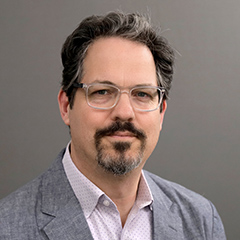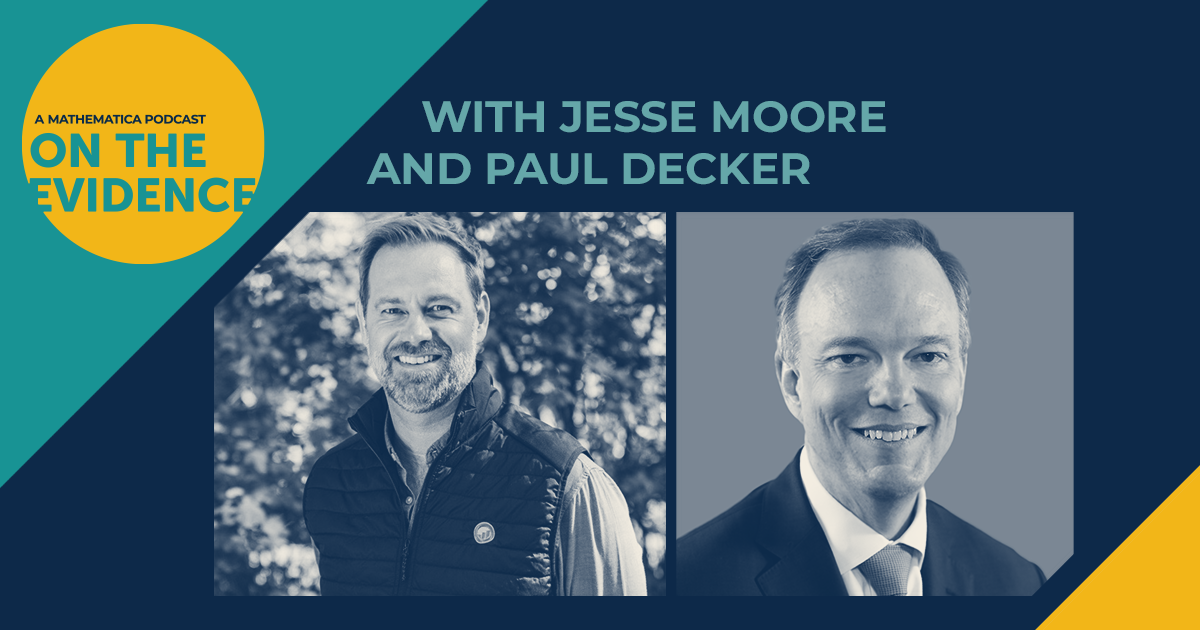Mathematica has long been known for rigorous, high-quality research and evaluation that improves programs, refines strategies, and deepens our collective understanding of some of the most urgent social challenges. When I joined the organization earlier this year, I was impressed not only by this deep expertise and commitment to equity, but also by the passion for turning that evidence into an active part of our clients’ work. Mathematica Global—the new identity for our International Unit—builds on our commitment to making progress together.
We are on the cusp of several important milestones in the international development sector, from the 20th anniversary of the Millennium Challenge Corporation in 2024 to the final years of the United Nations’ Sustainable Development Goals. These milestones summon a time of reflection across our sector: an eagerness to understand where we have come from, what we have accomplished, and where we are going next.
Within Mathematica, we have been asking ourselves the same questions. Our international work has grown over the past two decades—from a foundation of traditional impact evaluations into learning partnerships that increasingly explore the interconnectedness within and between all sectors of global health and development. As our clients’ global learning needs have evolved, so have we—and our name now reflects our steadfast desire to turn evidence and insight into lasting progress.
Mathematica Global is the unit of Mathematica that focuses on the most urgent global challenges.
From global health and education to climate change, workforce development, and women’s empowerment—to name a few—we partner with ambitious organizations driving progress toward even more ambitious goals to improve well-being for all.
Clients like the Millennium Challenge Corporation, the Bill & Melinda Gates Foundation, the Mastercard Foundation, and the U.S. Agency for International Development (USAID) are all working to improve the lives of people and communities everywhere. Their work is far-reaching, complex, and dynamic—which requires an equally far-reaching, complex, and dynamic approach to measurement, evaluation, and learning. They bring big questions of all kinds, and we work with them to find solutions that stand the test of time.
Mathematica Global incorporates the work of our subsidiary, EDI Global. With offices in Kenya, Tanzania, Uganda, and the United Kingdom, EDI extends our expertise and brings our work closer to the communities in which our clients engage. EDI Global also brings new perspectives that advance our work to build a more equitable and just world.
For the past two decades Mathematica has been working across a full range of sectors in more than 50 countries.
We started with some of the earliest evaluations for the Millennium Challenge Corporation, where we applied rigorous research approaches to measure the impact of their education work. From there, we have grown our measurement, evaluation, and learning practice into a comprehensive set of offerings that echo our clients’ drive for impact and desire to learn.
Today, we work across more than 50 countries and a full range of sectors—from improving early grade reading in Latin America and the Caribbean, to increasing productivity and market access for smallholder farmers in Sub-Saharan Africa, to expanding access to quality reproductive health services around the world.
Mathematica Global offers new strategies and approaches to our work.
Many of our partners and clients are facing strong headwinds: pandemics, climate change, conflicts, and socio-economic pressures that strain resources and shift priorities. At the same time, they are eager to understand their role in the broad global community—defining their spheres of influence and the levers they can use to increase equity and improve lives. While traditional metrics and indicators continue to serve an important role, our clients are asking us to go further.
They are eager to work smarter, to find new ways to accelerate impact while also understanding how their work fits into the broader ecosystem. They want to go beyond traditional metrics and indicators of success to build cultures of learning that touch every part of their work. Mathematica Global helps our clients not only look back at the impact they made, but also look around the corner at where their efforts may take them in the future. Today, we work alongside our clients to give them hindsight, insight, and foresight that enable evidence-driven strategies and programs.
Finally, we also strive to build the evidence capacity of everyone we work with—sharing the tools, knowledge, and confidence required for active learning. As advisors, we help clients define their learning priorities, build strategies based on generating and using evidence, and instill principles of continuous improvement across their work. This enables our clients to become the architects of progress built on a solid foundation of evidence.
At Mathematica, we know progress is about more than a single metric. We make progress when we ask better questions and when we evolve our understanding with new evidence. We make progress when new perspectives and better data enhance our learning. But above all, we make progress when we do it together. That is the promise of Mathematica Global.



